Column

I speak of the year 2013. I speak of six years ago. I speak of Delhi.
The owner of the little bookshop at Shankar Market in the Connaught Circus area is a scholar. It is in his talk of books, in his ability to know what sort of books you need that you assess the man. I was browsing through the pages of a book on Sufism when he stepped forward with a load of works dealing with Rumi and the Bhagavad Gita, suggesting that I take a look. Well, I did take a look, so much so that I ended up buying a whole load, including a history of Urdu literature.
There is a certain affability, a warmth as it were, about Delhi that you cannot miss. You are at a point between the end of autumn and the beginning of winter, a season when Diwali comes in all its colours and stays that way before departing, making sure that there will soon be days when hordes of people will enter the world of marriage. It is also a time when much deliberation takes place and intellectual blossoming is in the air. If on the one hand you are part of a dialogue on shared perspectives regarding the future of the rivers that unite India with Bangladesh, you are on the other quite likely to be a participant in a spirited observance of the birth centenary of the celebrated journalist Nikhil Chakravartty.
So there is this wonderful, almost poetic ambience where you speak, and hear others speak, of the flow of waters down the mighty rivers Jamuna, Meghna and Brahmaputra before moving on to deliberate on an individual whose life constantly rested on principles in which was reflected a soul that had no room for compromise on the values that sustain life. I have known the rivers that crisscross the subcontinent, all the way from the Indus to the Karnaphuli.
And I knew Nikhil Chakravartty during the final remaining years of his life. It was in Delhi, on a cold November day long ago, that he spoke to me of Partition, of how democracy needed to be sustained in countries relentlessly battered by autocracy. As the cold wind tore through us, leaving us in a state of the near frozen, Chakravartty spoke to me of his pre-Partition friendship with Bangabandhu, of the magical moment of their reunion in 1972, almost a quarter century after they had last met in the year when India lay sundered in two.
So Delhi, for me, was this time a celebration of Chakravartty in his myriad dimensions. He would be a hundred years old were he alive. It feels rather strange to imagine that Richard Nixon too would be a hundred years old in that year. But there the comparison comes to a stop, for Nikhil Chakravartty and Nixon were two men as different from each other as light is separate from darkness.
Chakravartty was a socialist; he was a principled journalist who was among that tiny group of media people who refused to genuflect before Indira Gandhi's emergency. And Nixon, brilliant foreign policy strategist that he was, was nevertheless a foul-mouthed western politician in whom sophistication was far outweighed by things Machiavellian. That was the thought which kept coming back to me as I heard Muchkund Dubey and JV Naik expound on the values that Nikhil Chakravartty kept alive all his life.
And then I heard Kamal Hossain speak on Chakravartty, even though I had already gone through the paper he had sent to the organizers - the Centre for Media Studies of Jawaharlal Nehru University, Editors Guild of India and Nikhil Chakravartty Foundation - in celebration of the man. Pakistan's Mubashar Hasan was sadly not coming to Delhi after all. It would have been quite an occasion observing him and Kamal Hossain interact again. The two men, if you recall, were part of the abortive political negotiations involving the Awami League, the Pakistan People's Party and the Yahya Khan junta in Dhaka in March 1971. Hossain assisted Bangabandhu Sheikh Mujibur Rahman; and Hasan aided Zulfikar Ali Bhutto.
Years earlier, I had asked Dr. Kamal Hossain if he was planning to write a book on politics as he saw it shaping up around him. He has done that, given us a good account of the history he has been instrumental in the making of. Years ago, in Lahore, I wanted to know from Mubashar Hasan if he meant to write anything on the happenings of 1971. I remember the sadness in his eyes as he told me softly, in Urdu, 'What is there to write, after all that has happened?' I do not know if he has produced a book after all. I would have asked him were he to make it to Delhi.
As winter prepared to step into homes and gardens and on to the streets of this sprawling city, I went around thinking of Pandit Nehru, of the politics Jinnah pursued here before he went off to his Pakistan, of the chaos that followed Indira Gandhi's assassination twenty nine years earlier. My parents passed through Delhi on their way to Quetta in the 1950s, with me as a baby in their arms. And I recalled the desperation with which Mirza Ghalib must have moved around the city, looking for economic sustenance and that necessary inebriation that would inject the spark into his poetry.
Delhi is a reminder of history. It is also a remembrance of old socializing. My friends Sandra Leitner and Thierry Costanzo, in Austria and France, let me know how much they missed the good old winter we spent at JNU a year earlier, in the company of others. Rakesh Batabyal and Sumit Mukherjee, who had invited me to the Nikhil Chakravartty conference, asked me to preside over a session of the deliberations before I presented my own paper the following day.
And pure delight came through fresh meetings with Aditya Mukherjee, Mridula Mukherjee and Sucheta Mahajan, all academics who turned out to be great friends ready for a conversation on the nature of contemporary intellectual ferment. S. Nihal Singh was a gem of a friend, giving me, at the end of my presentation on Chakravartty, a portrait of me he had doodled as he sat a little away from me, beside Kamal Hossain.
In the midst of it all, someone informed me Khushwant Singh's newest book was out. And I knew I had to go looking once again for that work on Mohammad Rafi, written by his daughter-in-law, that I was silly enough not to buy the last time I was in Delhi.
There are places I do not wish to say goodbye to. There are cities --- Dhaka, London, Delhi, Kolkata, Quetta --- that will always be home for me.









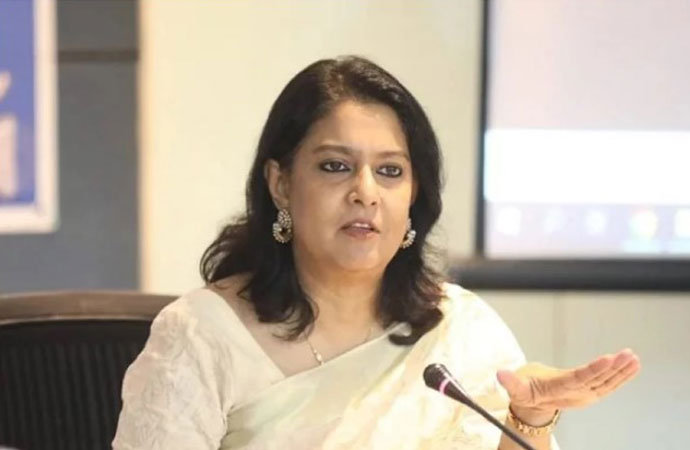
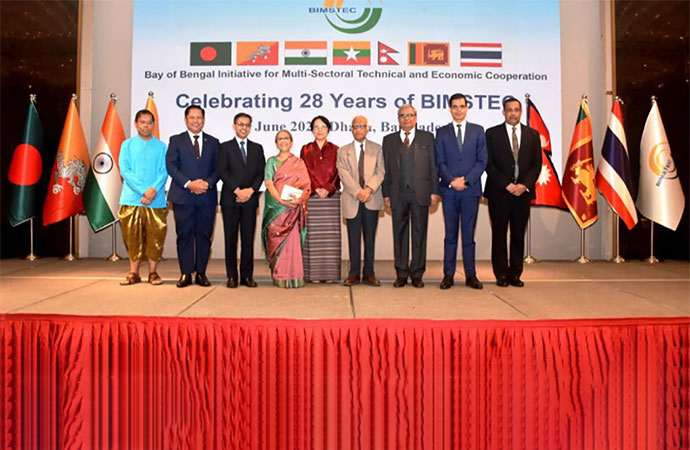








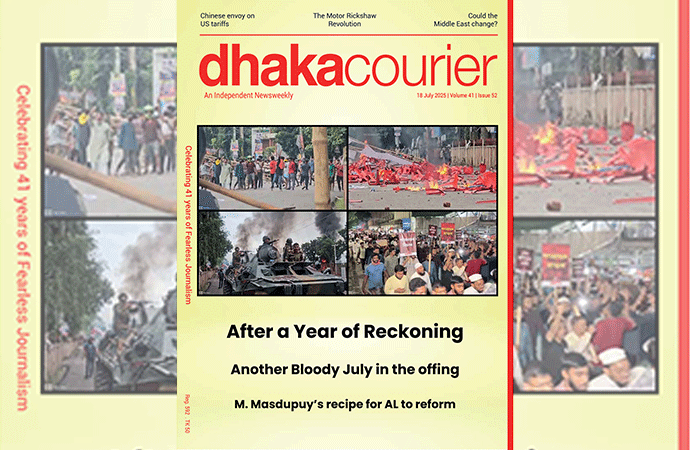
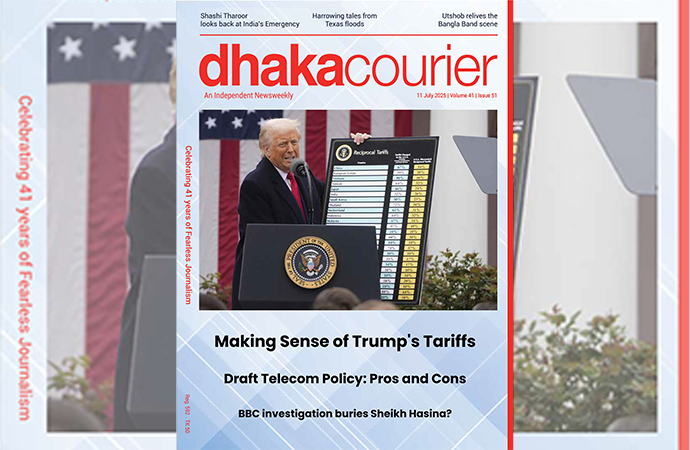
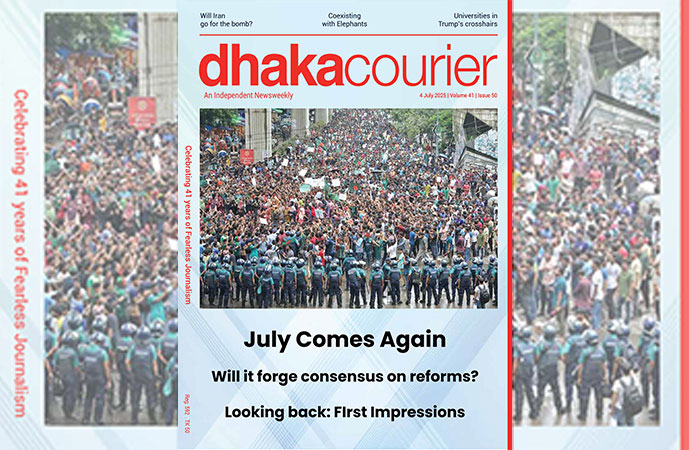
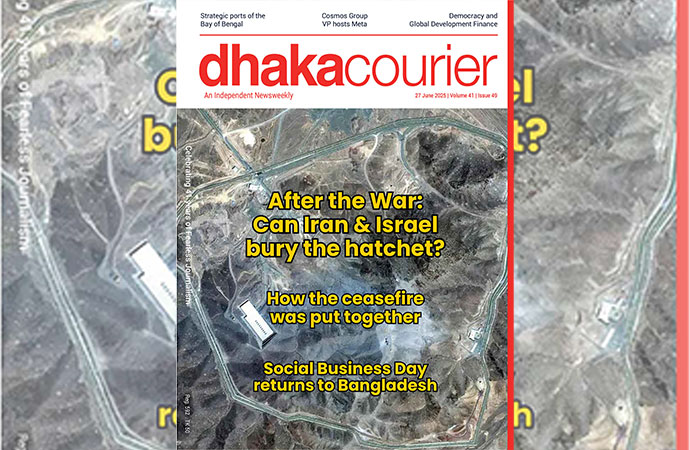
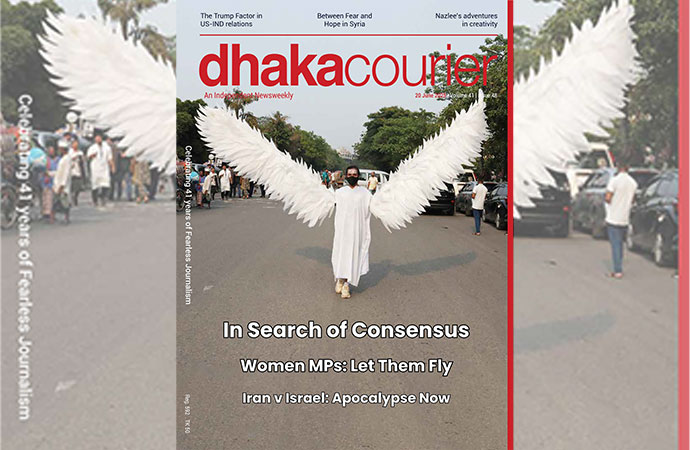
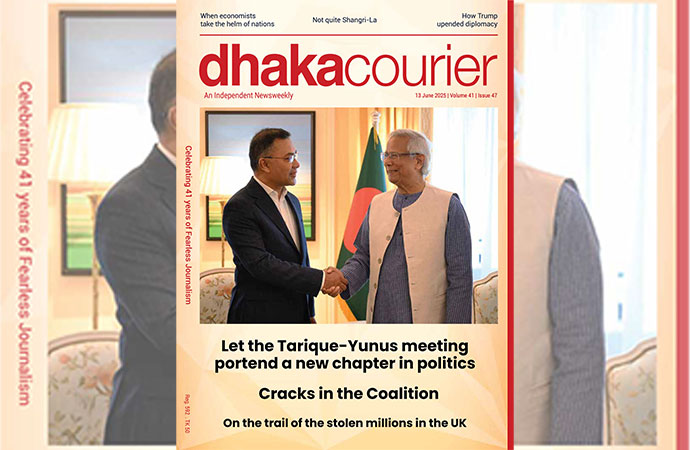
Leave a Comment
Recent Posts
The Northeastern Question
When secessionist movements sprang up across the Eastern European part ...
Trump’s Tariff: How far should ...
Will Bangladesh manage to get a last minute reprieve on its 'Trump tar ...
Rivers, Peaks, and Expressions – My Experience at th ..
What lies behind the alarming spike in violence agai ..
A Himalayan choice
Twenty Palestinians were killed at a food distributi ..